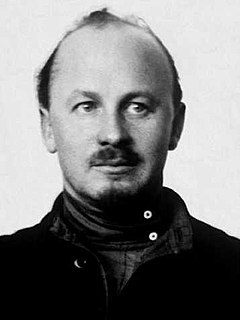A Quote by June Jordan
Good poetry and successful revolution change our lives. And you cannot compose a good poem or wage a revolution without changing consciousness unless you attack the language that you share with your enemies and invent a language that you share with your allies.
Related Quotes
First, what is a revolution? Sometimes I'm inclined to believe that many of our people are using this word "revolution" loosely, without taking careful consideration [of] what this word actually means, and what its historic characteristics are. When you study the historic nature of revolutions, the motive of a revolution, the objective of a revolution, and the result of a revolution, and the methods used in a revolution, you may change words. You may devise another program. You may change your goal and you may change your mind.
If you take the responsibility for your life you can start changing it. Slow will be the change, only in the course of time will you start; moving into the world of light and crystallization, but once you are crystallized you will know what real revolution is. Then share your revolution with others; it has to go that way, from heart to heart.
One way to think about what psychedelics are is as catalysts for language development. They literally force the evolution of language. You cannot evolve faster than your language because the language defines the culture of meaning. So if there's a way to accelerate the evolution of language then this is real consciousness expansion and it's a permanent thing. The great legacies of the 60's are in attitudes and language. It boils down to doing your own thing, feeling the vibe, ego-trip, blowing your mind.
My feeling is that most political poetry is preaching to the choir, and that the people who are going to make the political changes in our lives are not the people who read poetry, unfortunately. Poetry not specifically aimed at political revolution, though, is beneficial in moving people toward that kind of action, as well as other kinds of action. A good poem makes me want to be active on as many fronts as possible.
Poetry cannot be translated; and, therefore, it is the poets that preserve the languages; for we would not be at the trouble to learn a language if we could have all that is written in it just as well in a translation. But as the beauties of poetry cannot be preserved in any language except that in which it was originally written, we learn the language.
We keep each other alive with our stories. We need to share them, as much as we need to share food. We also require for our health the presence of good companions. One of the most extraordinary things about the land is that it knows this—and it compels language from some of us so that as a community we may converse about this or that place, and speak of the need.





































